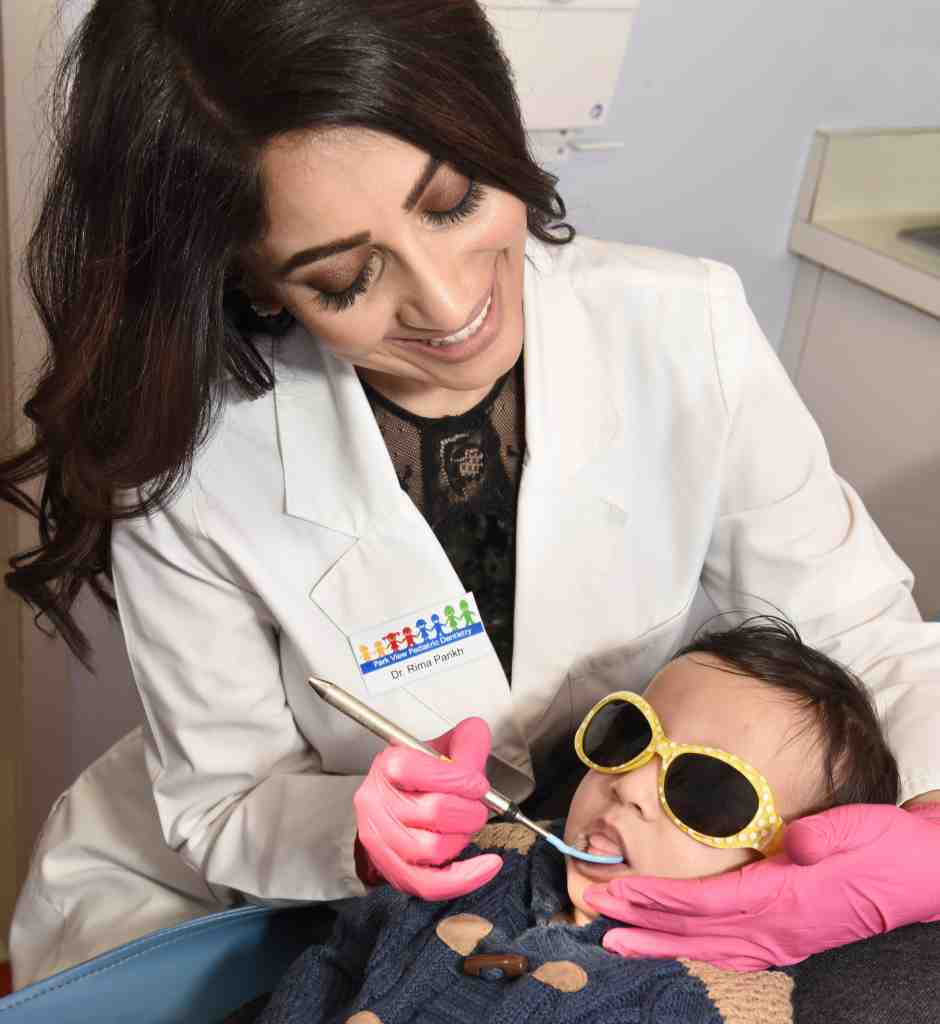
When should my child’s first dental visit occur?
Your child should visit a dentist after he or she has their first tooth, or no later than their first birthday. That’s a bit earlier than many parents think, but as soon as your child has teeth, he or she can get cavities. In fact, studies have found that more than 1 in 4 kids in the U.S. have at least one cavity by age 4. They can often get cavities as early as age 2.
In addition, making sure your child’s baby teeth are kept clean and are in the proper position helps set the stage for healthy permanent teeth.
What can I expect at my child’s first dental visit?
Your child’s first dental visit starts with choosing the right dentist. Skill is important, of course, and many parents prefer that their child see a pediatric dentist, who has additional training in treating children’s dental issues. This type of dentist is also more likely to have a child-friendly office that can help put kids at ease. Since pediatric dentists specialize in young patients, they and their entire staff are comfortable with relating to little ones and helping the visit go smoothly.
This first visit accomplishes three things:
First, it familiarizes your child with the staff and the office environment in a non-threatening way, thus building trust and creating a dental home. Introducing your child (and you) to the specific language that the office uses. For example, referring to a probe as a “tooth counter,” to take away the fear often associated with these items.
Second, going over diet and hygiene (going over possible foods/drinks that can cause cavities), demonstrating how to brush with your child.
Third, it allows the dentist to do a comprehensive oral examination which involves evaluating your child’s gums, jaw, and bite, keeping an eye out for bottle caries, frenum issues which can lead to feeling issues, or other problems that may affect teeth or speech patterns.
How can I prepare for this visit?
The following tips can help this first visit go as smoothly as possible for you and your child:
Don’t schedule an appointment during nap time, which could make your child feel more tired and cranky.
Before your visit, read your child a positive book or let him or her watch a DVD about a first dental visit.
Make a list of questions you may have, including those about at-home dental care, teething, thumb-sucking, or pacifier use.
Don’t be embarrassed if your child cries during the first visit. This isn’t uncommon, and your dentist can help try to calm him or her down.
If your child has special needs, try to find a pediatric dentist that frequently treats a variety of patients, including those with special needs.
